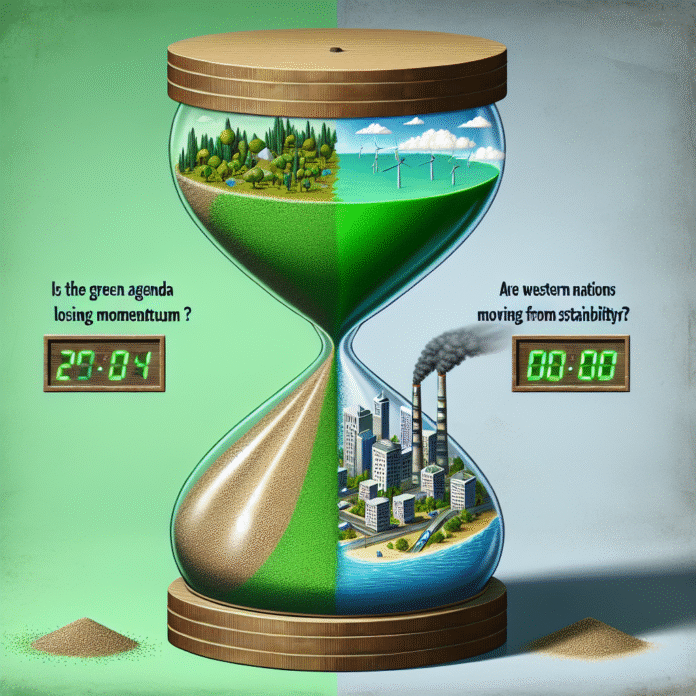Is the West Moving Away from Sustainability
Is the Green Agenda Losing Momentum? A Look at Sustainability in the West
The commitment to sustainability and environmental responsibility, often referred to as the “Green Agenda,” appears to be facing significant challenges in the Western world. As various nations grapple with economic pressures, political shifts, and social dynamics, there are growing concerns that the robust focus on sustainable practices is beginning to wane.
The Economic Tug-of-War
In recent years, many Western economies have encountered substantial economic challenges, including inflation, supply chain disruptions, and energy crises. This economic turmoil has forced policymakers to reassess their priorities, often placing immediate economic recovery above long-term sustainability goals. As energy prices soar, there’s a palpable shift towards fossil fuels, raising questions about the commitment to renewable energy initiatives.
In countries like the United States and parts of Europe, political divisions have further complicated the sustainability narrative. Some lawmakers advocate for aggressive green policies, while others prioritize traditional energy industries, arguing that these sectors provide essential jobs and economic stability. This dichotomy often leads to inconsistent policies, creating uncertainty for businesses and investors in the green sector.
Public Sentiment and Climate Fatigue
Public perception plays a crucial role in the effectiveness of the Green Agenda. Recent surveys indicate that many citizens are experiencing “climate fatigue,” a phenomenon where overwhelming news about climate change leads to desensitization and apathy. As climate-related disasters become more frequent, the public’s emotional response can shift from urgency to resignation, impacting grassroots movements and public support for sustainability initiatives.
Moreover, the COVID-19 pandemic has shifted priorities for many individuals and communities. While there was a brief surge in eco-friendly practices during lockdowns—such as reduced travel and increased local consumption—the focus has since shifted back to immediate health and economic concerns. This shift has led to a decline in collective action towards sustainability.
Technological Innovations and Their Role
Despite these setbacks, technological advancements continue to offer hope for the Green Agenda. Innovations in renewable energy, such as solar and wind power, are becoming more efficient and cost-effective. Electric vehicles are gaining traction, and energy storage solutions are advancing, making sustainable energy more accessible.
Moreover, companies are increasingly adopting corporate social responsibility (CSR) initiatives, recognizing that sustainability can be a competitive advantage. This trend suggests that while governmental policies may fluctuate, the private sector is increasingly aware of the long-term benefits of sustainable practices.
A Global Perspective
It’s important to note that the challenges facing the Green Agenda are not confined to the West. Developing nations often prioritize economic growth and poverty alleviation over environmental concerns, creating a complex global landscape. International cooperation and support are crucial to ensure that sustainability efforts are equitable and inclusive.
Additionally, global initiatives like the Paris Agreement continue to hold nations accountable for their environmental commitments. As countries prepare for future climate conferences, there is hope that renewed focus on collaboration and shared responsibility may reignite momentum for the Green Agenda.
Conclusion
While the West may be experiencing a moment of uncertainty regarding its commitment to sustainability, the underlying principles of the Green Agenda remain relevant. Economic pressures, public sentiment, and political dynamics pose challenges, but advancements in technology and growing corporate responsibility indicate a potential pathway forward. To ensure a sustainable future, it is essential for all sectors—government, private, and civil society—to recommit to environmental stewardship and collective action. The journey towards sustainability may be fraught with obstacles, but the imperative remains clear: a sustainable world is vital for the health of our planet and future generations.


